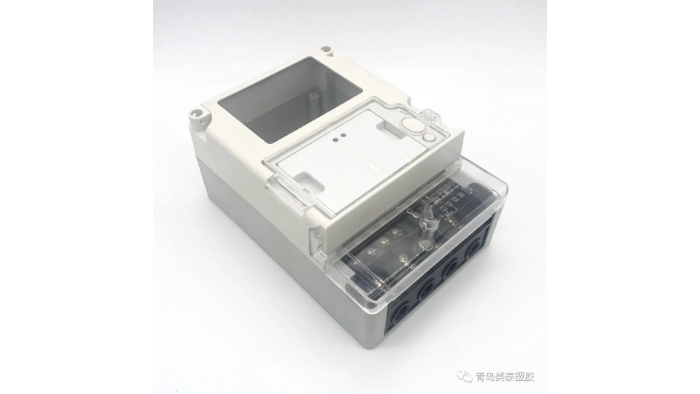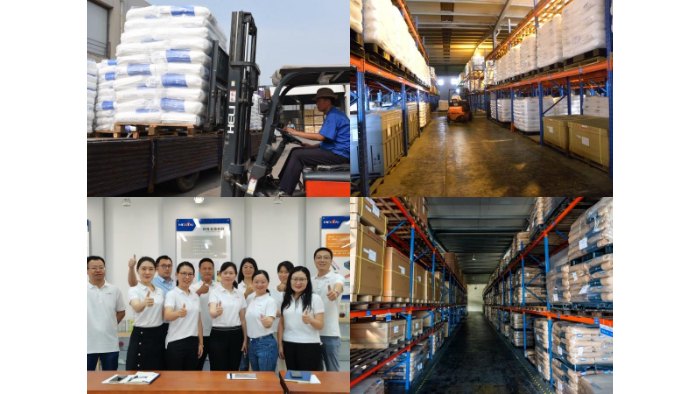PC, known for its excellent impact resistance, heat resistance, and high strength, has become a common choice for meter box housings. The addition of a certain proportion of glass fiber further enhances its strength, resistance to high and low temperatures, and dimensional stability. The PC+10%GF flame retardant material produced by Metai Plastic has found widespread applications in products such as meter box housings, owing to the following advantages:

1.Impact Resistance: PC itself possesses outstanding impact resistance, and the addition of 10% glass fiber filler further enhances the material's impact resistance. Metai Plastic's PC+10%GF flame retardant material significantly improves tensile strength and rigidity, making the housing more mechanically robust and better able to withstand external impacts and pressures, protecting internal electronic components from damage.
2.Heat Resistance: PC inherently has high heat resistance, and the incorporation of glass fiber further improves its resistance to high temperatures. The PC+10%GF flame retardant material exhibits excellent heat resistance, ensuring stability even in high-temperature environments—a crucial characteristic for meter boxes that operate under various climatic conditions, including high temperatures.
3.High Strength: The addition of glass fiber significantly enhances the material's strength. Metai Plastic's PC+10%GF flame retardant material reduces the material's coefficient of thermal expansion, improving dimensional stability. This ensures that the meter box housing not only has sufficient rigidity but can also withstand certain external loads, increasing the product's lifespan and stability.
4.Dimensional Stability: PC+10%GF flame retardant material demonstrates excellent dimensional stability, maintaining the shape and size of the housing even in environments with significant temperature variations. This ensures the reliability and consistency of the meter box housing under different working conditions.
5.Flame Retardancy: The flame retardant performance of PC+10%GF flame retardant material is a key reason for its widespread use in products like meter box housings. Metai Plastic's glass fiber-reinforced PC achieves a flame retardant rating of UL94 1.6mm V0, significantly enhancing the safety performance of the meter box housing. Flame retardancy effectively slows down the material's combustion rate, improving the product's safety in emergencies such as fires.
6.Suitability for Production Processes: Injection molding is a common plastic product manufacturing process, and PC+10%GF flame retardant material is suitable for this process, making the production and manufacturing process more convenient and efficient.
7.Environmental Friendliness: Metai Plastic's PC+10%GF flame retardant material may comply with environmental standards, being free from harmful substances, thus meeting modern society's demand for green and sustainable materials.
8.Chemical Stability: PC sheets exhibit high chemical stability, capable of resisting corrosion from various chemicals. This is crucial in outdoor environments, especially for meters exposed to diverse weather conditions.
9.Lightweight and High Strength: PC sheets are characterized by their lightweight and high strength, providing sufficient structural integrity without adding excessive weight to the meter itself. This is advantageous for both installation and maintenance purposes.
10.Transparency: PC sheets boast excellent transparency, allowing clear visibility of the meter's internal display screen or indicator lights. This is essential for ensuring the readability and visibility of the meter, contributing to its overall functionality.

Currently, some factories still use PVC plastic or PP material for meter box housings. However, PVC or PP may have certain drawbacks that need careful consideration when selecting materials. The following are some potential disadvantages of using PVC or PP for meter box housings:
Lower Mechanical Performance: Compared to PC, PVC and PP exhibit relatively lower mechanical performance, including impact resistance and strength. In situations where the housing may be subjected to physical impact or external stress, the meter box housing could be more susceptible to damage.
1.Limited Heat Resistance: PVC may soften at high temperatures, and while PP has relatively better heat resistance, it still has limitations. In devices like meters, heat resistance is crucial for prolonged operation and usage under various climatic conditions.
2.Poor Flame Retardancy: PVC has comparatively poor flame retardant performance, and the flame retardancy of PP is also limited. As meter box housings require a certain level of flame retardancy, choosing these materials might necessitate additional flame retardant treatments, increasing manufacturing costs.
3.Low Transparency: PVC and PP have lower transparency compared to PC. This could result in difficulties in clearly seeing the internal display screen or indicator lights of the meter without opening the housing, impacting the user experience.
4.Environmental Considerations: The production process of PVC may release harmful gases, and its waste disposal can have some environmental impact. While PP is relatively more environmentally friendly, the increasing awareness of environmental issues makes choosing more eco-friendly materials a growing trend.
5.Processing Limitations: The processing techniques for PVC and PP may have some limitations compared to PC. Especially in the design of housings with complex structures or high precision requirements, these materials may face challenges.
6.Plasticity Variability: Different brands and models of PVC and PP may exhibit varying plasticity and molding performance, introducing uncertainties during the manufacturing process.
When selecting materials for meter box housings, it is essential to consider the above drawbacks in conjunction with specific application requirements. In some cases, PVC and PP may still be suitable choices, but for applications with higher demands on heat resistance, mechanical performance, and flame retardancy, materials like PC may be more ideal.
In conclusion, the widespread application of PC+10%GF flame retardant material in meter box housings enhances the performance, safety, and reliability of meter products.
Metai Plastic's engineers, when formulating the recipe, optimize the design based on the customer's specific requirements, including size, shape, appearance, electrical performance, etc., to ensure that material selection achieves the best balance between cost and performance.
Founded in 2007, Qingdao Metai Plastic has 16 years of experience in the production of modified plastics, coloring, and masterbatch. They focus on one-to-one customized development, mature formulations, and ensuring that products accurately match customer requirements. Products include PC/ABS alloys, halogen-free flame-retardant engineering plastics, glass fiber-reinforced modified materials, anti-static materials, medical-grade masterbatch, PET fiber-grade masterbatch, biodegradable plastics, ASA/PE wood-plastic coextrusion materials, etc. If you need to collaborate with a modified PC manufacturer, feel free to contact us by phone. You can also inquire/leave a message online to communicate directly with customer service.

0086 13605427277
0086 0532 68051919
0086 157 2520 9359